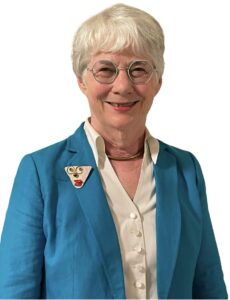Evolution disclaimer proposed for books
Topeka ? Conservatives on Wednesday took aim at evolution, proposing to put disclaimer stickers on science textbooks and creating a new hearing process for evolution opponents to challenge its teaching in public schools.
The moves alarmed Leonard Krishtalka, director of Kansas University’s National History Museum & Biodiversity Research Center.
“This is what totalitarian governments do. They try to control what people think rather than allow people to think independently,” Krishtalka said.
Atty. Gen. Phill Kline said he favored putting stickers on textbooks similar to what was done in Georgia, and he suggested the idea to conservative members of the State Board of Education. Conservatives now have a 6-4 majority on the board.
Kline said the stickers would be a “reasonable compromise” to end the political warfare about evolution that has dogged the board the past six years.
Stickers peeled back
In Cobb County, Ga., a suburb of Atlanta, the school board had stickers placed on high school science textbooks that said, “This textbook contains material on evolution. Evolution is a theory, not a fact, regarding the origin of living things. The material should be approached with an open mind, studied carefully and critically considered.”
Last month, a federal judge ordered the stickers removed, saying they were an unconstitutional endorsement of religion.
Even so, Kline, a conservative Republican, said he believed the stickers were defensible and that the ruling would be overturned on appeal.
He said the textbook stickers were mentioned when he had two closed-door meetings Tuesday with three members each of the education board to discuss school-finance litigation. He said he met only with conservative members because he believed the four moderates on the board would be counseled by other state officials.

Lawrence High School sophomores from left, Tyler Lau, back to camera, Jessica Foster and Courtney Kincaid, analyze baking soda in a chemistry class Wednesday, the same day that conservatives proposed to put stickers on textbooks saying that evolution was not a fact.
Kline told the conservative board members if they wanted to put evolution disclaimer stickers on textbooks, he would be happy to defend the action in court.
Stickers OK
Krishtalka said the disclaimer was meant to minimize evolution when “there is no other scientific explanation to explain life on earth and diversity on earth except evolution.”
Several students interviewed at Lawrence and Free State high schools said teaching evolution was important but that they wouldn’t be troubled by a sticker on their books that said evolution was a theory.
“That seems about right. It is only a theory, as many things are. They’re just stating it, and I think that’s fine,” said Kyleigh Haggard, a Free State sophomore.
Jenny Felts, an LHS senior, said, “It would be good to express that it is just a theory.”
Alan Gleue, chairman of the science department at LHS and a physics teacher, said philosophical and religious ideas about the origins of life should be included in the school curriculum, but not in science courses.
“I don’t think any of us have any reservations of looking at creationism or intelligent design as long as it’s not placed on the level of a science hypothesis, because creationism is actually an idea based on a philosophical or religious argument,” he said. “There’s really no other competing scientific idea that has the foundation that evolution has.”
He disagreed with the idea of using stickers on textbooks qualifying evolution as a theory.
“In science, theory means well-researched and validated with many different experiments. We don’t really agree with having a sticker because that misrepresents the definition of theory in a scientific context,” he said.
New process
Education board Chairman Steve Abrams, of Arkansas City, said the sticker idea was Kline’s and that he hadn’t heard of other board members considering it.
Earlier Wednesday, Abrams led a conservative blitz past moderates on the board to devise a new committee of conservatives who will have meetings “to investigate the merits” of competing theories on the origin of life.
Abrams said the meetings were needed to gather more information before the education board enacts science standards that will be used as the basis for statewide science testing in public schools.
But moderates said the new committee meetings would subvert the process already under way by a board committee of science experts to put together science standards.
Board member Carol Rupe, of Wichita, said the new process would result in science standards being chosen by popular vote such as in reality television shows “like ‘American Idol.'”
Steven Case, a research assistant professor at Kansas University, and chairman of that science standards committee, said Abrams’ new committee meeting process would delay the time when the science standards could be put into place for the statewide tests, called assessments.
“This will slow down the timeline,” Case said.
Carol Williamson, of Olathe, also a member of that committee of science experts, said, “The more it is slowed down, the more it affects the assessments; that affects students’ learning.”







